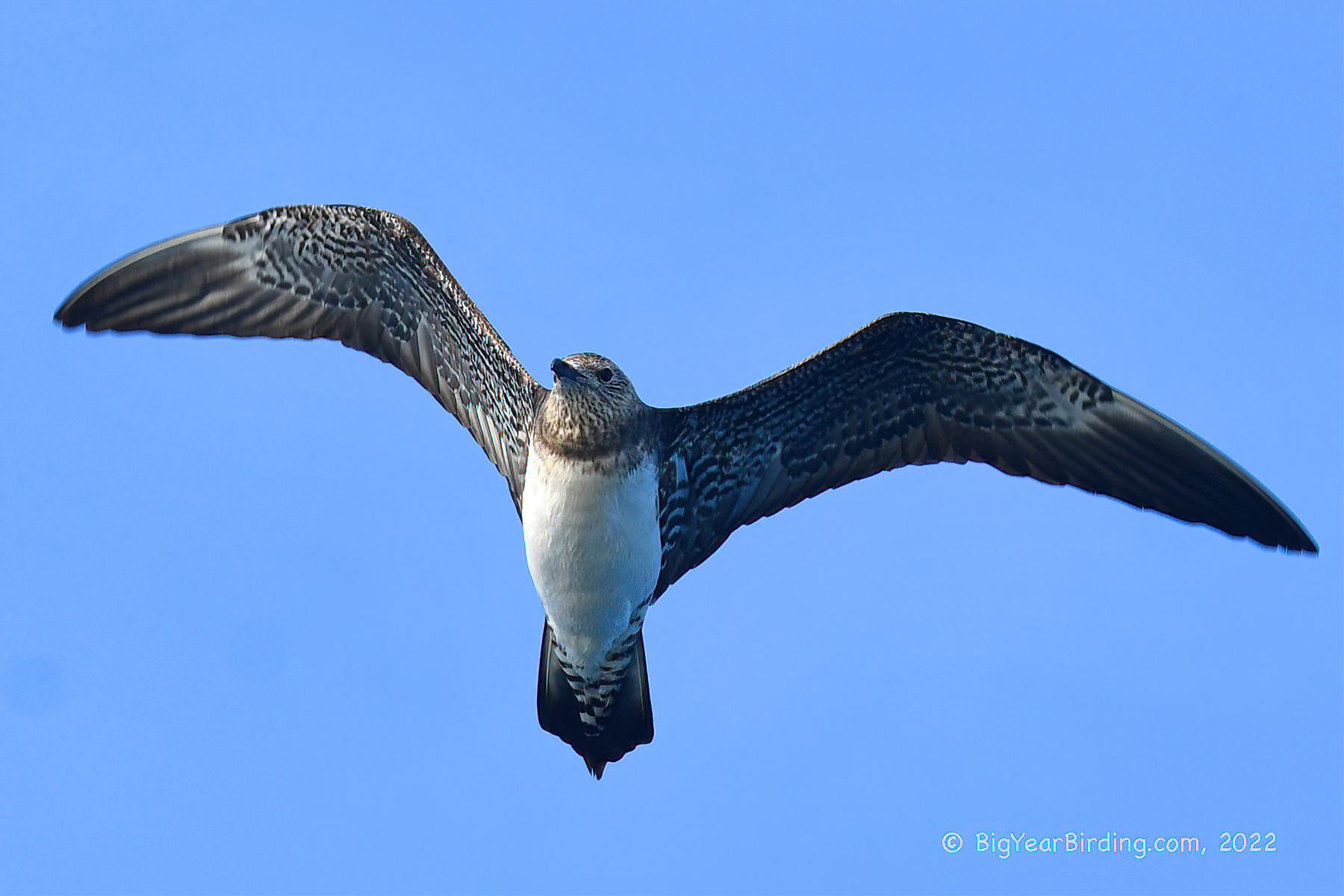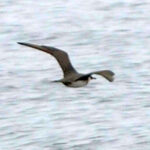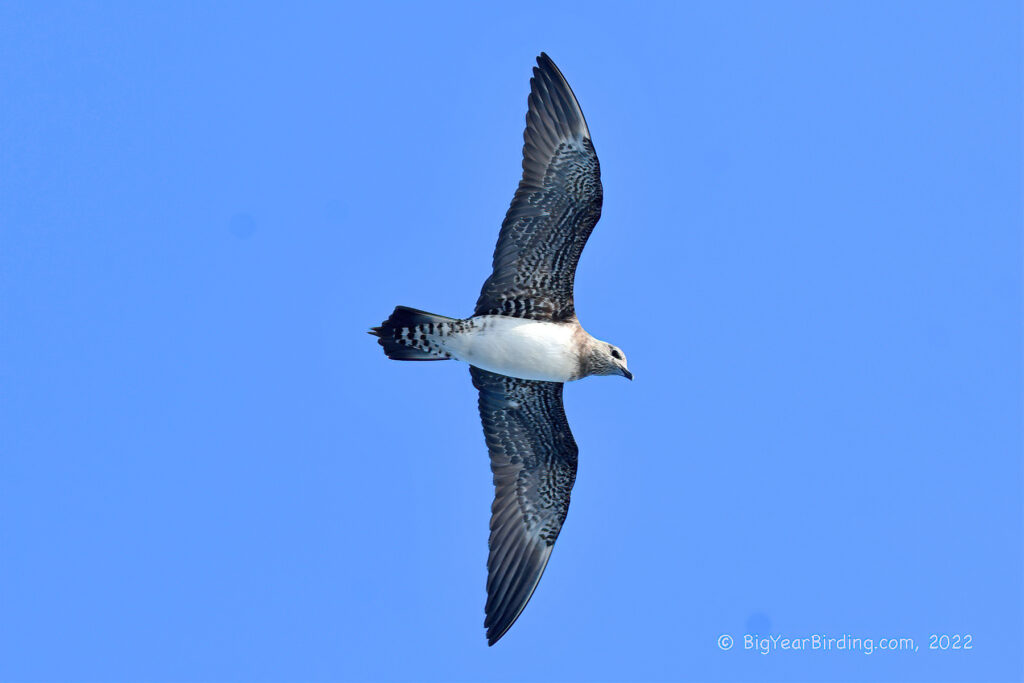
“Jaeger” is the German and Dutch word for hunter and when it comes to birds . . . a Jaeger is a ferocious hunter of the oceans.

There are two types of Jaegers often found in Maine waters, the Pomarine Jaeger and the Parasitic Jaeger. Each of these birds roams the Gulf of Maine, attacking other seabirds and stealing their food. A Jaeger is a really “mean” bird.
Yesterday, Ingrid and I went on a whale watch out of Bar Harbor hoping to see a Pomarine, Parasitic and/or other seabirds that can be found far away from the Maine coast.
An hour out at sea, we hit a whale friendly area and watched Humpback Whales pop up and down around the boat.

And like so often happens, the birds came in, feeding on the same food as the whales.

Then two beautiful birds started paralleling our boat, sometimes flying directly overhead. The Whale Watch naturalist identified them as Pomarine Jaegers . . . but they looked too small . . . almost cute in nature. Ingrid and I thought they might be Parasitic Jaegers but something seemed wrong.
I took dozens of photos of them, some from only about 20 feet away and after ten minutes the mystery birds headed off.

We returned home about 11:00 pm tired but happy after an amazing day on the water.
Up early this morning, I downloaded the photos of theses curious birds onto my laptop, grabbed a pile of bird books from the shelf and began to investigate. After an hour or so, I concluded that these were not your “run of the mill” Pomarine or Parasitic Jaegers . . . but a rare visitor to Maine . . . a pair of juvenile Long-tailed Jaegers . . . migrating from their birth place in the Arctic to their wintering ground in Antartica. A very exciting find if true.
Ingrid reviewed my hypothesis and agreed. We then started letting the rest of the Maine Birding community about them. Ingrid and I also celebrated a new “Life Bird.”
Finding and identifying a rarity is a big deal for a birder.

